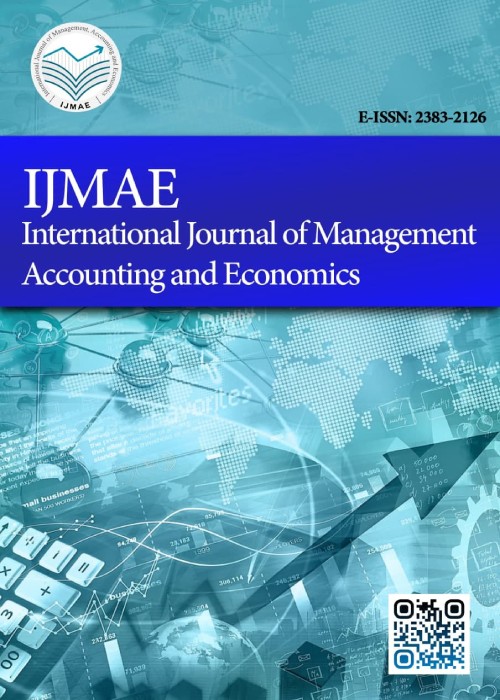فهرست مطالب
International Journal of Management, Accounting and Economics
Volume:5 Issue: 3, Mar 2018
- تاریخ انتشار: 1397/01/08
- تعداد عناوین: 4
-
Page 1In leading organization, considering to strategic intellectual assets capabilities of managers and their management talent are more important. An excellence of organization depends on the development of attitudes and capabilities of managers. On the other hand, managers abilities and the creating power of effective organizational strategies are the most important factors to promote motivation, commitment and loyalty of employee. In recent decades, industrial organizations are facing the pressure of innovation, thus an effective innovation management seems necessary that this will be achieved by specific job roles and competencies and special management skills. In order to ensure the ability of managers in areas of innovation, these competencies should be evaluated and also, it is needed to take necessary actions for developing and expanding them. This study aims to identify and prioritize the most influential and eligibility criteria for innovation managers. In present study, we identified and recognize criteria merit for innovative managers, and we used F.DEMATEL method to determine the relationship and how it influence on measures and its severity of influence, also F.ANP is used to prioritize criteria. The result of this research includes a model that consists of three major criteria and 15 sub-criteria. In research model, future studies, management of change and evolution, innovation and entrepreneurship are achieved the first to third priorities.Keywords: Competency, Innovation managers, Innovation organizations, FUZZY ANP, FUZZY DEMATEL
-
Page 2The aim of this research is to study the determinants of work-life balance (WLB) in the Event Industry of Malaysia. This research intends to discover the impact of these variables (working hours, workload, leave policies, work arrangements and reward schemes) on WLB. This study adapts explanatory research design and primary data is collected through survey questionnaires measured with five (5) point Likert-Scale. A total sample of 303 (n=303) were collected simple random sampling method. This research found that Working Hours (WH), Workload (WL), Work Arrangements (WA) and Reward Schemes (RS) have significant impact on the Work Life Balance among the Event Industry professionals. Leave policies (LP) found to have insignificant impact on work life balance.Keywords: Work-life Balance, Working Hours, Workload, Leave Policies, Work Arrangements, Reward Schemes, Event Industry, Malaysia
-
Page 3The main objective of this study is to identify the variables that reduce the audit expectation gap and to prescribe a model in doing so in Bangladeshi context. Prominent researchers from various countries suggested several factors in reducing the audit expectation gap. Out of whom only the impact of audit education and the implementation of Financial Reporting Act regulations (FRA-2015 of Bangladesh) have been studied so far in Bangladesh; which indicates the research gap. This motivated the current study in identifying the holistic view for drawing a rigorous conclusion. In doing so, Likert 5 point scale based structured questionnaire has been randomly surveyed to 50 respondents including 20 university faculty members of accounting and auditing discipline; 10 qualified and practicing Chartered Accountants; and a group of 20 articled students of accounting bodies from Bangladesh. Principal component tool of factor analysis and Pearsons correlation analysis have been employed in analyzing the collected data. Correlation results prove that the identified variables reduce the audit expectation gap significantly and factor analysis strongly recommends a model that reduces the audit expectation gap in Bangladesh.Keywords: Audit Expectation Gap, Audit Expectation Gap Reduction Model, Bangladesh
-
Page 4Over the years, there has been unresolved debate in the literature and studies have generated mixed results on the direction of influence between trade liberalization and trade tax revenue. Against this background, this study examined the causal nexus between trade liberalization and trade tax revenue in Nigeria with data spanning 1986 to 2014 with a view to determining whether there is any complementarity between trade policy and revenue generation drive of the Nigerian government. Utilizing a bi-variate VAR model, the study observed a unidirectional causation from trade tax revenue to trade liberalization. Base on this finding, the study recommended the need for efficient implementation and functioning of trade policy and to de-emphasize the focus on crude-oil in order to ensure the successful performance of trade liberalization policy. In addition, the implementation of the trade liberalization policy should be guided to mitigate any adverse consequence.Keywords: Trade liberalization, Trade tax revenue, VAR, Causality, Nigeria


